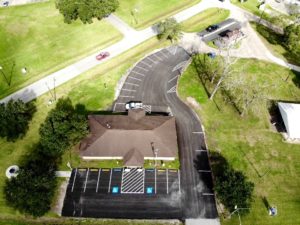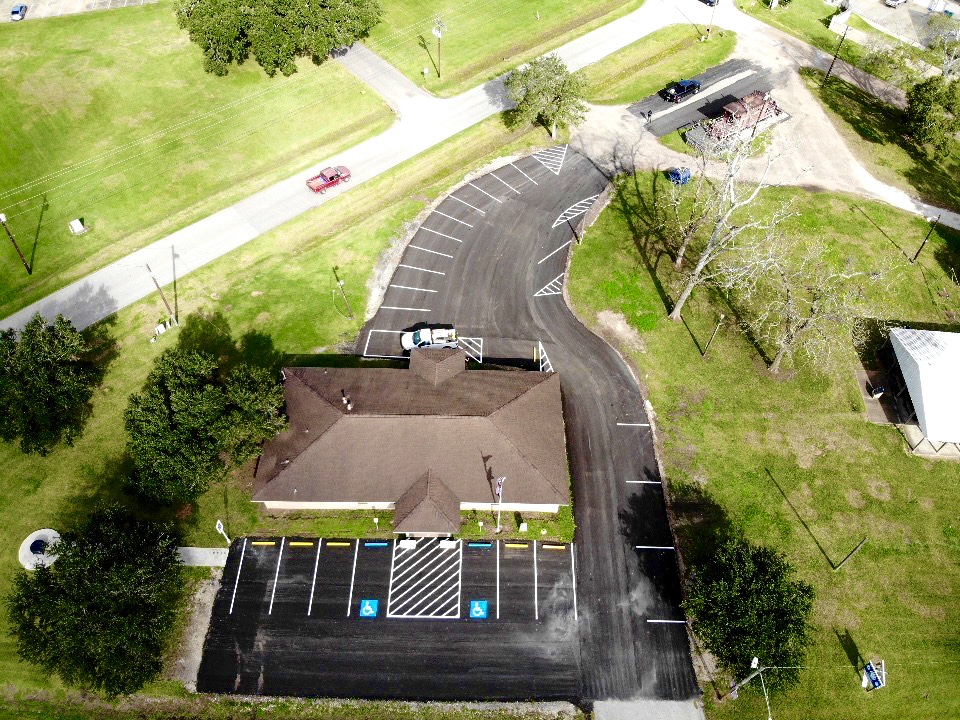
What Is Sealcoating?
An asphalt sealcoating procedure involves the application of a liquid emulsion to the pavement. The application method can vary, but most parking lot maintenance companies use sprayers whenever possible. Parking lot sealcoating typically involves covering large, open areas, so sprayers are normally more efficient than squeegees or hand tools. When applied by an experienced Houston asphalt sealcoating contractor, a sealcoat can provide a smooth, attractive finish that is ideal for parking lots, low-traffic streets in subdivisions, bike trails, and pavements used extensively by pedestrians.
What Are Slurry Seals?
A slurry seal is a thick mix that contains asphalt emulsion, water, additives, and aggregates. Many paving maintenance contractors consider a slurry seal to be a type of asphalt resurfacing, but it should not be confused with an asphalt overlay. Slurry seals offer an additional wear surface that make them ideal for airport tarmacs as well as streets and roadways that bear heavy traffic, but the surface will have a rougher texture than one that is sealed.
What Are Some Key Differences and Similarities Between Sealcoating and Slurry Seals?
One key difference is in their longevity. Sealcoating normally last between two and five years, but a slurry seal typically lasts between six and nine years. Therefore, although a slurry seal costs more, the difference in longevity can offset that difference in cost. Another key difference is in the time it takes each to cure; a sealcoat can cure in two to four hours, but a slurry seal will usually need at least eight hours to cure. Furthermore, slurry seals are better at filling in and concealing pavement imperfections than sealcoat. As for their similarities, either procedure will provide enhanced protection for an asphalt pavement, and both procedures will provide the dark, luxurious color for which asphalt is famous.
How Do I Decide Between a Slurry Seal and a Sealcoat?
The best way to reach the correct decision for your specific pavement is to contact us for an assessment and recommendation. Marathon Solutions is an experienced and reputable paving company offering a wide range of services, including asphalt sealcoating, paving maintenance, asphalt paving, parking lot striping, asphalt overlays, concrete repair, parking lot maintenance, asphalt milling, concrete installation, thermoplastic markings, and parking lot signage. We serve clients in many locations, including Houston, Baytown, League City, Humble, Conroe, Katy, Cypress, and Kingwood. We have an impeccable reputation for integrity, craftsmanship, and service. Contact us for a free quote by submitting our online form, calling 800-879-1147, or emailing HQ@Marathon-Solutions.com


